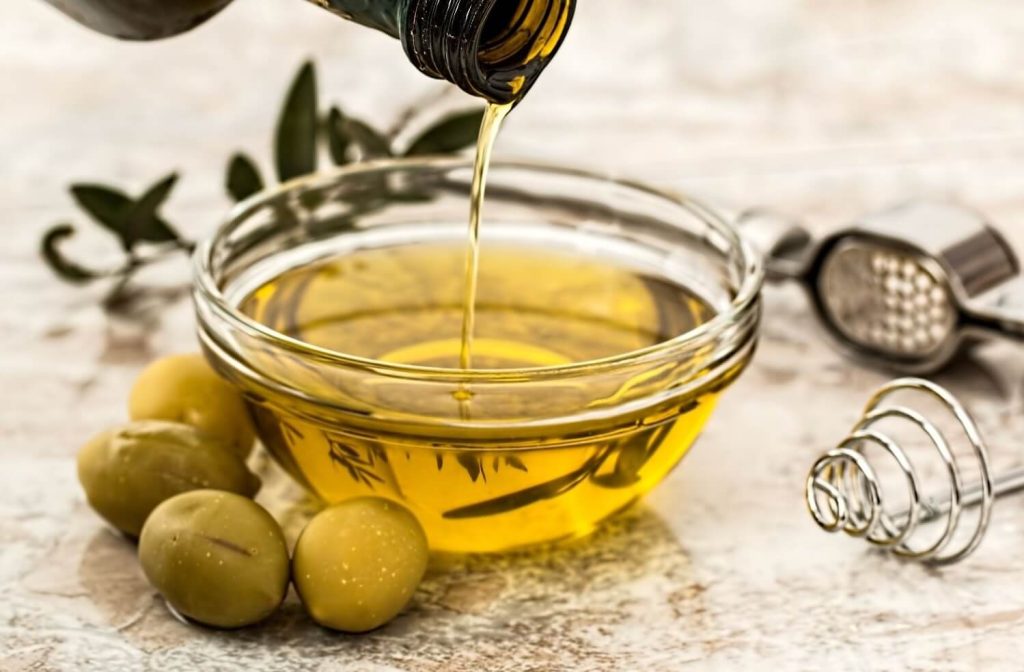Cooking oils are a cornerstone of culinary traditions worldwide, enhancing the flavor, texture, and nutritional value of meals. However, with so much conflicting information about their health impacts and uses, it’s easy to get lost in a sea of misconceptions. Are all fats harmful? Is one type of oil superior to the rest? This blog aims to debunk common myths and reveal fascinating facts about cooking oils, empowering you to make healthier, tastier, and more informed choices in your kitchen.
Understanding Cooking Oils
Cooking oils are an essential part of culinary practices, playing a crucial role in both flavor and nutrition. Understanding their types and composition helps in making better choices for healthier and tastier meals.
What Are Cooking Oils?
Cooking oils are derived from a variety of sources, including plants, seeds, and animals. Each type of oil has its unique properties and uses in cooking.
- Vegetable Oils:
Derived from plants like soybeans, corn, and olives, vegetable oils are among the most commonly used. Olive oil, for example, is widely known for its versatility and health benefits, while sunflower oil is popular for its mild flavor. - Seed Oils:
Extracted from seeds like flaxseeds, sesame, and canola, these oils are often rich in omega-3 fatty acids and other nutrients. They are typically used for dressings, light sautéing, or as finishing oils for their strong flavors. - Animal-Based Fats:
While not technically oils, fats like butter, lard, and ghee are used similarly. They are prized for their rich flavors and suitability for high-heat cooking.
Their Role in Cooking
Cooking oils aren’t just a medium for frying; they enhance food in several ways:
- Frying and Sautéing: Oils act as heat transfer mediums, allowing for even cooking while adding flavor.
- Baking: Oils like canola and coconut oil contribute to the texture and moisture of baked goods.
- Dressing and Marinating: Olive oil, avocado oil, and sesame oil are commonly used in raw form for dressings, enhancing both flavor and nutrition.
Nutritional Components
- Fats:
- Saturated Fats: Found in coconut oil and butter, these fats are stable at high temperatures but should be consumed in moderation.
- Unsaturated Fats: These are the “good” fats found in oils like olive, canola, and sunflower. They support heart health and are ideal for daily use.
- Trans Fats: Often found in hydrogenated oils, these are harmful and should be avoided.
- Vitamins and Antioxidants:
Some oils are rich in vitamins like E and K. For instance, sunflower oil contains high levels of vitamin E, which promotes skin and immune health, while extra virgin olive oil is loaded with antioxidants that fight inflammation.

Popular Myths About Cooking Oils
Misconceptions about cooking oils often lead to unhealthy choices or missed opportunities to use oils to their full potential. Let’s debunk some of the most common myths.
Myth 1: All Fats Are Bad for Health
For years, fats have been vilified as the enemy of good health. However, not all fats are created equal.
- The Truth:
Unsaturated fats, such as monounsaturated and polyunsaturated fats found in olive, avocado, and flaxseed oils, are beneficial for heart health. They help lower bad cholesterol levels (LDL) and increase good cholesterol (HDL). - The Takeaway:
Include oils rich in unsaturated fats in your diet for a balanced and heart-healthy approach to cooking.
Myth 2: Olive Oil Is the Only Healthy Option
Olive oil often takes the spotlight for its health benefits, but other oils deserve attention too.
- The Truth:
While olive oil is fantastic for Mediterranean dishes and light cooking, oils like avocado oil (rich in monounsaturated fats) and canola oil (low in saturated fat) are excellent alternatives. Sunflower and grapeseed oils are also great for high-heat cooking. - The Takeaway:
Experiment with different oils to diversify flavors and nutritional benefits in your meals.
Myth 3: Cooking Oils Don’t Expire
Many believe that oils have an indefinite shelf life, but this is far from true.
- The Truth:
Cooking oils can go rancid over time, especially when exposed to heat, light, or air. Rancid oil not only tastes unpleasant but can also produce harmful free radicals that may negatively impact health. - The Takeaway:
Store oils in a cool, dark place and check expiration dates to ensure you’re using fresh oil.
Myth 4: Coconut Oil Is Perfect for Everything
Coconut oil has been marketed as a superfood, but it’s not a one-size-fits-all solution.
- The Truth:
Coconut oil is high in saturated fats, which can raise cholesterol levels if consumed excessively. While it’s excellent for certain cooking methods like frying due to its stability, it’s not the healthiest choice for everyday use. - The Takeaway:
Use coconut oil sparingly and balance it with oils rich in unsaturated fats for a healthier diet.

Facts About Cooking Oils
Now that we’ve cleared up common myths, let’s look at some intriguing facts about cooking oils that can help you make informed decisions in the kitchen.
Fact 1: Smoke Points Matter
The smoke point of an oil refers to the temperature at which it begins to break down and release harmful compounds.
- Why It Matters:
Cooking oil beyond its smoke point can degrade its flavor and produce toxic substances. For example, olive oil has a lower smoke point, making it unsuitable for high-heat frying but ideal for sautéing or drizzling. - Best Oils for Cooking Methods:
- High-heat frying: Peanut oil, sunflower oil.
- Sautéing: Olive oil, avocado oil.
- Baking: Canola oil, grapeseed oil.
Fact 2: Oils Can Be Sources of Essential Nutrients
Some oils provide valuable nutrients that support overall health.
- Omega-3 and Omega-6 Fatty Acids:
Found in flaxseed, walnut, and canola oils, these fats support brain function and reduce inflammation. - Vitamin E:
Sunflower and safflower oils are excellent sources of this antioxidant, which protects cells and promotes skin health.
Fact 3: Cold-Pressed Oils Retain More Nutrients
Cold-pressed oils are extracted without heat, preserving their natural flavors and nutrients.
- Why Choose Cold-Pressed?
Cold-pressed olive oil retains its antioxidants, making it healthier and tastier than refined versions. These oils are ideal for dressings or drizzling over cooked foods.
Fact 4: Oil Storage Impacts Quality
Improper storage can shorten the shelf life of cooking oils and degrade their quality.
- Tips for Storing Oils:
- Keep oils in a cool, dark place, such as a pantry.
- Use airtight containers to prevent oxidation.
- Avoid storing oils near the stove, where heat can accelerate spoilage.

Choosing the Right Oil for Healthy Cooking
The variety of cooking oils available today can make choosing the right one feel overwhelming. However, understanding the key factors that influence an oil’s suitability for specific uses can help you make informed decisions for healthier cooking.
Factors to Consider
- Nutritional Profile:
Oils rich in unsaturated fats, such as olive oil and canola oil, are better for heart health compared to those high in saturated fats like coconut oil or palm oil. Oils that contain omega-3 fatty acids, such as flaxseed oil, provide additional benefits like reducing inflammation. - Smoke Point:
The smoke point is the temperature at which oil begins to break down and release harmful compounds. Choosing an oil with the appropriate smoke point for your cooking method is essential:- High smoke points are ideal for frying and roasting.
- Low smoke points work best for dressings and light sautéing.
- Flavor:
The taste of an oil can enhance or overpower your dish. Neutral oils like canola or grapeseed are versatile for general cooking, while flavorful oils like sesame or walnut can add depth to specific dishes.
Best Oils for Specific Uses
- Olive Oil for Salad Dressings and Light Sautéing:
Extra virgin olive oil is perfect for cold dishes like salads, as it enhances flavors with its fruity, slightly peppery taste. It’s also great for light sautéing but not suitable for high-heat cooking due to its lower smoke point. - Canola Oil for Baking:
With its neutral flavor, canola oil doesn’t interfere with the taste of baked goods. Its light texture and high smoke point make it a popular choice for cakes, muffins, and quick breads. - Peanut Oil for Deep Frying:
Peanut oil’s high smoke point and neutral flavor make it ideal for deep frying. It’s commonly used in Asian cuisine and produces crisp, golden results in fried dishes.
Blending Oils
Combining oils is an effective way to balance flavor, nutrition, and cooking requirements. For example:
- Mixing olive oil with canola oil can give you the health benefits of olive oil with the higher smoke point of canola oil.
- Combining sesame oil with a neutral oil allows you to enjoy its rich flavor without overpowering your dish.

Cooking Oils and Taste Enhancement
Cooking oils don’t just cook food—they bring out unique flavors that can transform a dish. Understanding how different oils affect taste and how to pair them with foods is a game-changer for both home cooks and culinary enthusiasts.
How Different Oils Affect Flavor
- The Nutty Taste of Sesame Oil:
Sesame oil is a flavor powerhouse, often used in Asian cooking. Its bold, nutty flavor adds depth to stir-fries, marinades, and dipping sauces. Toasted sesame oil, in particular, is great for finishing dishes. - The Mild Sweetness of Coconut Oil:
Coconut oil imparts a subtle sweetness, making it an excellent choice for baking or cooking curries and tropical-inspired dishes. It pairs beautifully with ingredients like turmeric, ginger, and lime. - The Richness of Butter and Ghee:
Butter and ghee (clarified butter) add a rich, creamy flavor to dishes. Commonly used in traditional recipes, they’re perfect for sautéing, roasting, or even drizzling over popcorn for a decadent treat.
Pairing Oils with Foods
- Sesame Oil for Asian Cuisine:
A staple in Chinese, Japanese, and Korean dishes, sesame oil enhances stir-fries, ramen, and salad dressings. A drizzle of sesame oil on steamed vegetables or noodles can elevate the dish instantly. - Olive Oil for Mediterranean Cuisine:
Known for its versatility, olive oil is the backbone of Mediterranean dishes. Use it to dress salads, drizzle over hummus, or roast vegetables for a burst of flavor. - Avocado Oil for Modern Fusion Cooking:
With a high smoke point and mild flavor, avocado oil works well in fusion dishes that require both frying and subtle taste enhancement.

Eco-Friendly and Sustainable Cooking Oil Options
As environmental awareness grows, the focus on eco-friendly and sustainable cooking oils has intensified. By choosing responsibly produced oils, you can contribute to reducing the environmental impact of your culinary practices.
The Environmental Impact of Oil Production
- Palm Oil and Deforestation:
Palm oil is widely used in both cooking and processed foods, but its production is linked to deforestation, loss of biodiversity, and greenhouse gas emissions. Avoiding unsustainably sourced palm oil is crucial for protecting rainforests and wildlife. - Sustainable Alternatives:
- Coconut Oil: Often produced more sustainably, coconut oil has a smaller environmental footprint than palm oil.
- Avocado Oil: Though relatively new to the market, avocado oil is gaining popularity for its sustainability and versatility.
- Rapeseed Oil: Sourced from canola plants, this oil is an eco-friendly option with low environmental impact during production.
Choosing Ethical Brands
- Look for certifications such as RSPO (Roundtable on Sustainable Palm Oil) or Fair Trade when purchasing cooking oils.
- Support brands that prioritize sustainable farming practices and transparent sourcing. Companies that minimize waste and use eco-friendly packaging are ideal choices.
Recycling Used Cooking Oil
Recycling cooking oil not only prevents environmental harm but also creates opportunities for sustainable energy production.
- Proper Disposal: Never pour used cooking oil down the drain, as it can clog pipes and pollute waterways. Instead, store it in a container and take it to a recycling facility.
- Repurposing for Biofuel: Many recycling centers convert used cooking oil into biofuels, reducing dependence on fossil fuels.
Conclusion
Cooking oils play a vital role in shaping both the flavor and nutritional value of our meals. By debunking myths and understanding the facts, you can make smarter choices contributing to healthier, tastier dishes. Explore the diverse options available, prioritize high-quality and sustainable oils, and use them wisely to elevate your cooking. Embrace informed practices, and you’ll enhance your meals and support a healthier lifestyle and a more sustainable future.
